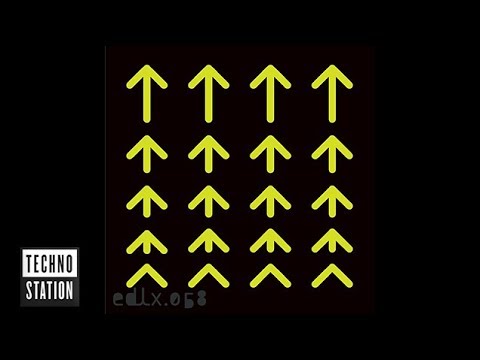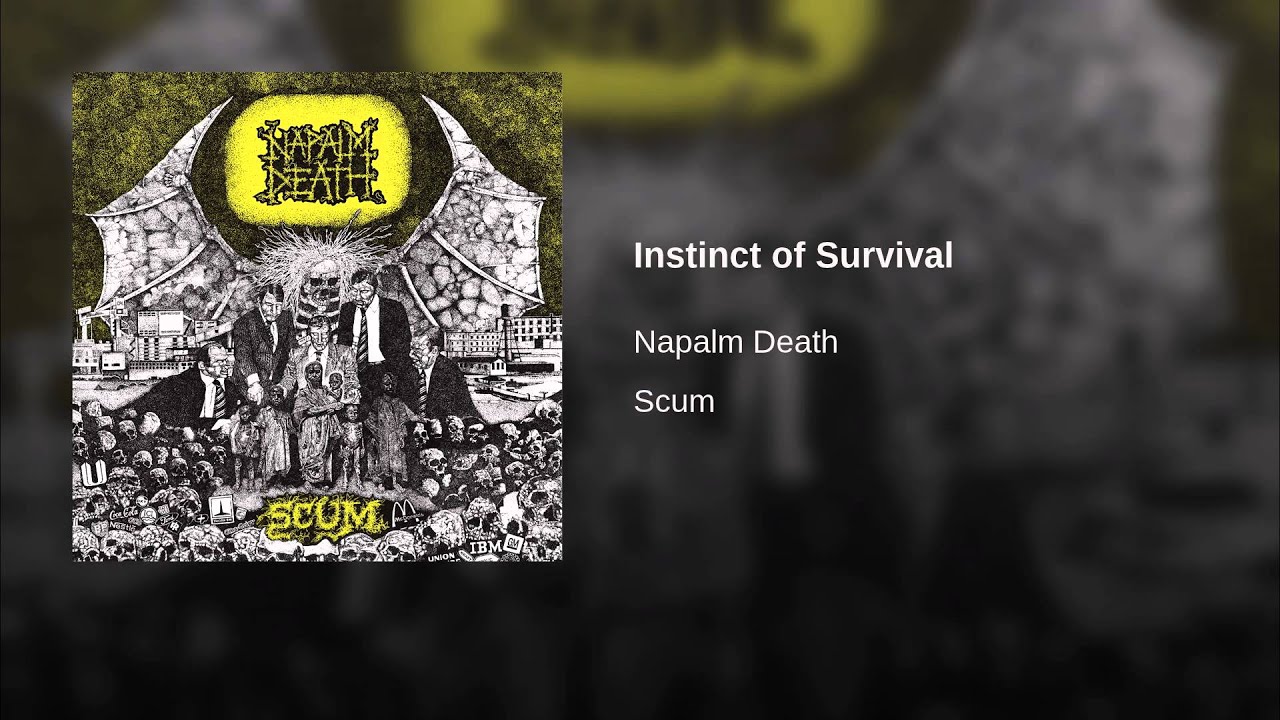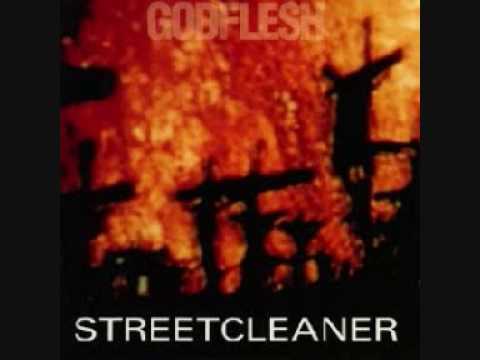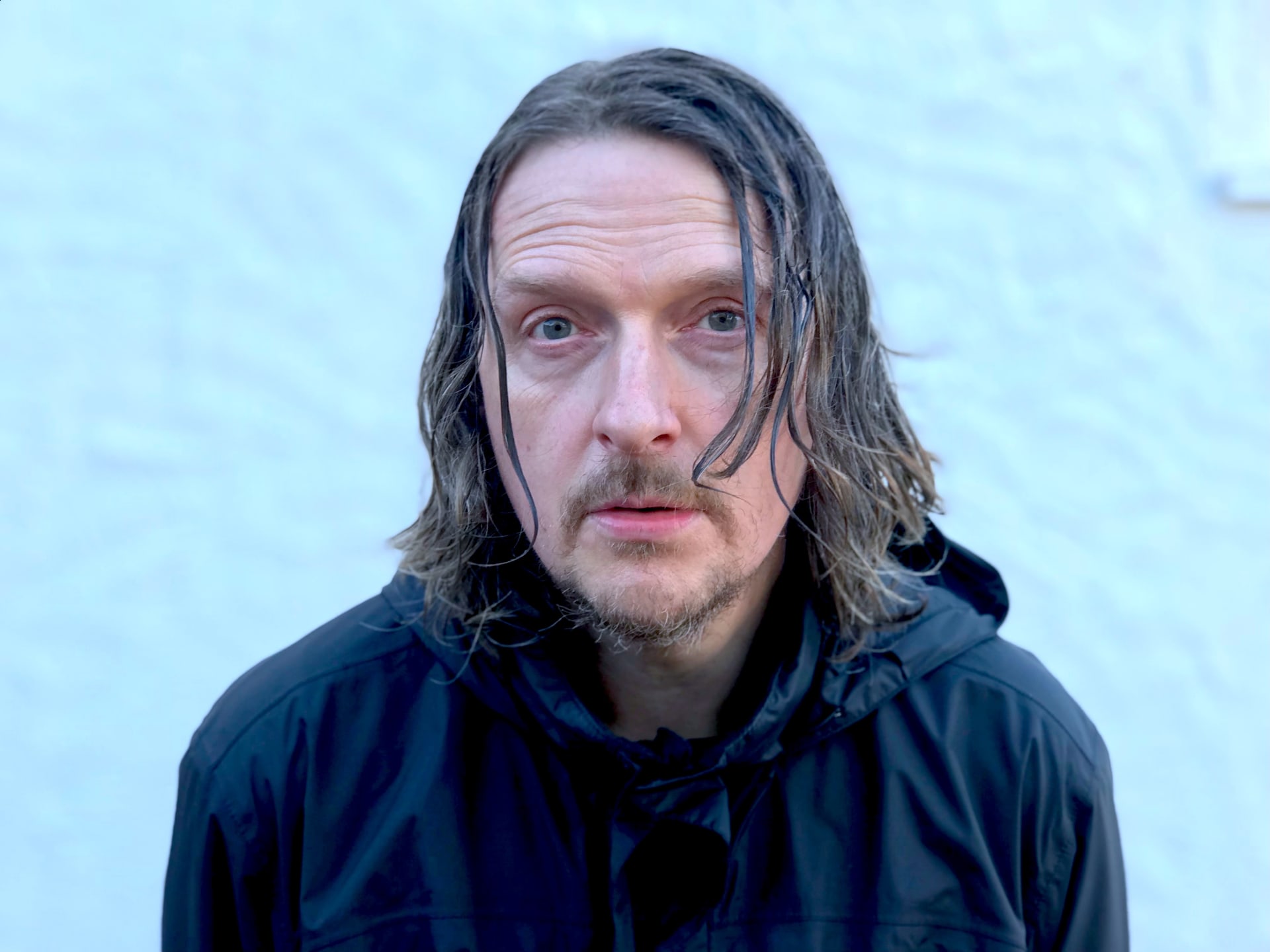
Heavy Metal Techno: JK Flesh On Futurism, DIY Culture And The Beauty Of Non-Music
English musician Justin K Broadrick has been at the vanguard of the extreme metal, noise and punk scenes for more than three decades. His involvement in the famed grindcore band Napalm Death, the 1980s industrial outfit Godflesh and the experimental trio Jesu are just some of the myriad musical legacies that he’s left in his wake. After twenty years defining the contours of hard rock genres, he began to turn his attention towards electronic music, claiming that he finds it “more futuristic and consistently subversive.” JK Flesh is the solo moniker under which he’s producing genre-defying dance music and industrial techno. Andy O’Conner interviewed him about his history, influences and his most recent release, New Horizon, on Speedy J’s label Electric Deluxe.
Justin Broadrick is a household name in metal for his work with industrial metal pioneers Godflesh and his shoegaze metal project, Jesu. But one of the most influential musicians in heavy music doesn’t consider that world his home: he’s significantly more prolific in electronic music, and since 2011, JK Flesh—his techno moniker—has been his primary artistic focus.
The “Flesh” isn’t a deliberate connection, but it acts as a crucial link. Though he experiments with several different genres—mainly techno’s more obscure edges—his work is united by an intensity matched by his industrial metal background. JK Flesh takes on its own identity by subsuming other identities, making entry points nerve-racking and demanding on the listener. Passive club music this isn’t.
With New Horizon, which was released October 9 through Speedy J’s label Electric Deluxe, Broadrick takes on dub techno in his singularly harsh vein. It’s his fourth release this year, following the EP Wasplike, the PI04 12-inch and the “Black Market/Resist Stance” 7-inch with Submerged and Blacktacular. Broadrick made this record entirely through jams from live hardware.
“While I did some of these DJ sets, it occurred to me that I should do something more concise and get some tracks out of it,” he told me over Skype. “I was more enamored with having live drum machines and live synths. It’s like—being inspired by machines and then immediately wanting to roll with that as opposed to ruminating on it, just to get a vibe.”
New Horizon is aimed at a techno audience, yet there’s plenty of abrasive sounds for those who came to JK Flesh through Broadrick’s metal work. According to Broadrick, Speedy J described the record as “Basic Channel in hell,” and that’s a fairly accurate description. “Super Human” is loaded with crushed bass bombs that have the same visceral appeal as a crunchy guitar making coordinated strikes through a techno rhythm. Where “Super Human” sounds assured, “External Transmission Stage” is constantly on the verge of losing it, dominated by tense flare-ups under an encroaching bass current. Even in its set pattern, its high-pitched waves scream irrationally, running around and bound in a cage.
“Genetics”, however, is closer to a conventional dance floor track, and it carries over some of the same dread from “Transmission”. It’s a natural follow-up to Wasplike, which also treaded the line between hard dance floor grooves and dark techno abyss. “Transmission” and “Genetics” were both inspired by Detroit Techno linchpin Jeff Mills, who’s a huge deal for Broadrick. Most importantly, Mills’ sense of reduction really appeals to him, and you can see that in something as loud and aggressive as New Horizon. He also cited Plastikman and Aphex Twin’s “Digeridoo” as key reference points for the album.
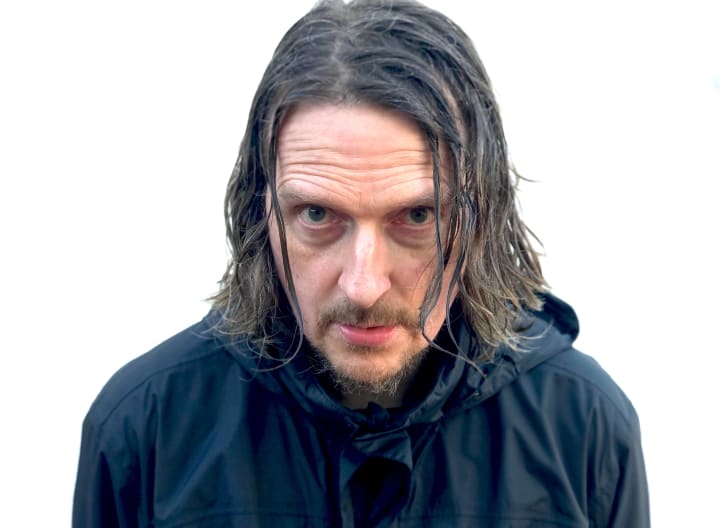
“The sort of arpeggios, and the arpeggios that I used in a track like ‘Transmission’, have all sense of musicality removed. They just seem to be reduced to pulses, very atonal, dissonant sequenced percussive pulses, and they sound ultra-alien and other-worldly,” he said.
Mills was a revelation for him at a time when some of the music he was listening to was becoming a bit too conventional.
“I was a hard, hard fan of EBM in the ‘80s…but when these artists became very musical I was less interested,” Broadrick said. “What I did like was when the sequences and the pulses sounded closer to percussion—very little musicality or overt use of melody.”
JK Flesh’s unforgiving sound can sound almost inhuman, and New Horizon doesn’t offer any more respite. That’s by design.
“I’m just trying to reduce and minimize any standard harmonics that evoke any form of musicality,” Broadrick said. “I actually reduce things down so they sound more like a machine for me, not like a musical instrument. It’s somewhat trying to remove myself from the music and remove all shred of humanity.”
Like much of Broadrick’s music, JK Flesh is rooted in industrial. To really get at New Horizon, we have to look back at where Broadrick came from. Some of his biggest influences are Throbbing Gristle, Cabaret Voltaire and Whitehouse, which he took in simultaneously as a punk pre-teen.
“I still find electronic both more futuristic and more consistently subversive.”
“The first person that played [Gristle] to me ironically thought they were gonna shock me with it, but instead of shocking me, I was more completely enamored by its extremity and how avant-garde it was,” he said. “I was introduced to the concepts of non-music, which to me appeared and still do appear as music.”
Though Broadrick never abandoned playing “guitar music,” being exposed to industrial at a young age galvanized his musical ambitions.
“As a young musician, it changed my aspirations. As a kid, I just wanted to play a barre chord and play it as fast as I could in a punk band,” he said. “By the time I was exposed to industrial music, I recognized that playing these barre chords isn’t everything. What I’m interested in is sound and texture.”
Before industrial, he got a lesson in the beauty of non-music. There’s being ahead of the curve, and then there’s hearing Lou Reed’s Metal Machine Music when you’re eight years old. Broadrick has musically curious parents, and his stepdad in particular was a big Reed fan. Out-there guitar music wasn’t out of the norm for his family—Broadrick also recalled Hendrix and Can as home staples—but guitars playing themselves through feedback was something else entirely. Metal Machine Music is now considered one of the first noise records and has its own cult fanbase, yet at the time, people didn’t know what to make of it. It’s one of the ultimate musical “fuck yous,” an experimental innovation brought about by someone just looking to get out of a record contract.
“It was a mythical record,” Broadrick said. “I was really intrigued with this record that they spoke about in my company as being basically unlistenable. I wouldn’t even say I liked it, it was just the most intriguing thing I ever heard. I was almost prepared for something like Throbbing Gristle at a sensitive age.”
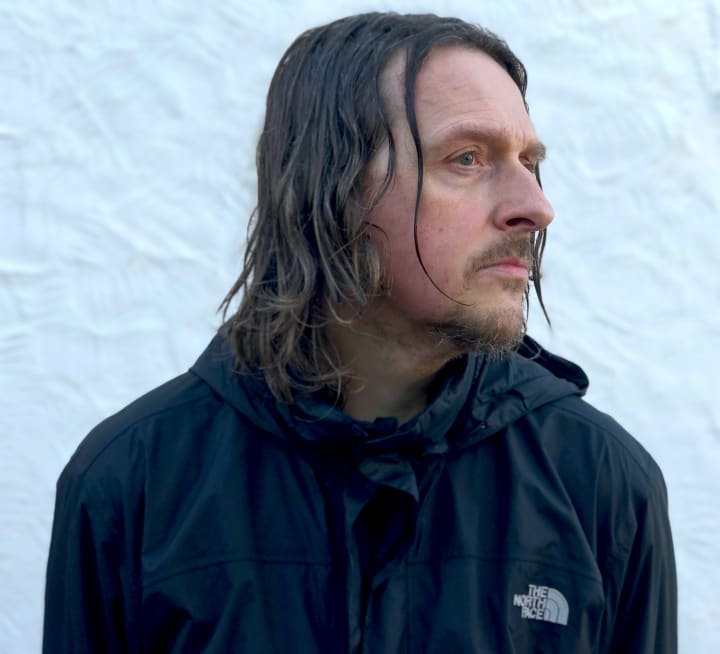
In 1985, Broadrick joined Napalm Death, a hardcore band that would later become a pioneer of grindcore, on guitar. Aside from his work in Godflesh, Scum is Broadrick’s most well-known contribution—or the first half of Scum anyway, as he only appeared on the record’s a-side, whereas the b-side is infamously a different lineup save for drummer Mick Harris (no relation to Mitch Harris, their current guitarist). It begins with “Multinational Corporations,” a wall of noise where vocalist Nik Bullen yells “Multinational Corporations/Genocide of the Starving Nations” on repeat for an entire minute. “Multinational Corporations” was beat-less industrial music with the scorched-earth lyrical bluntness of Discharge, both an anomaly for the album it was kicking off. There wasn’t anything that extreme before it.
“It was a wall of noise by design, it wasn’t just an intro to ‘Instinct of Survival,’” he said. “The side of all the songs I wrote for Scum—yes, of course it’s influenced by Celtic Frost, Siege, and so on, but also there is that peripheral influence with what I was obsessed with: early industrial and power electronics.”
Broadrick was turning his friends and bandmates in the Birmingham hardcore scene onto industrial music any chance he got. He would go on to form Scorn with Harris, a harsh dub/industrial project who represented Earache Records’, where Godflesh released many of their seminal recordings in the ‘90s, experimental wing.
“Some of the stuff I was giving him was literally me playing on somebody’s borrowed synthesizer through my stepdad’s distortion pedals, all the way to me playing primitive punk riffs,” he said.
After Napalm Death, Broadrick formed Fall Of Because with bassist Ben Green, which became Godflesh. This is where he really found his voice—or rather, one of his many voices, bound by aggressive sounds that permeate in New Horizon. Streetcleaner is an essential metal text, fusing industrial’s mechanical negative regard for humankind with bone-crushing, primal riffing. It’s angry and lurching and sometimes grooveable, a product of alienation that hasn’t found answers in the nearly 30 years since its birth—only more affirmation of “fuck everything.”
Godflesh was an anomaly for their use of drum machines in metal, and in a way, they’re still ahead of their time on that front. Streetcleaner wouldn’t have sounded as cold and alienated as it does without them. In fact, most metal that incorporated electronics can be traced back to Broadrick, which can give him pause sometimes.
And while Godflesh was his main focus in the ‘90s, he was just as active, if not more, in electronic music. This started with Techno Animal, a duo with The Bug’s Kevin Martin, as well as his ambient project Final. His anti-metal approach to metal also made him feel more at home in the electronic world, not just in the broader sense of community, but in physical clubs, too.
“I liked the fact that it felt different to rock shows, where it wasn’t so centralized on the band. And it didn’t have to be that visual, where it was the pleasure of being on the dancefloor,” he said. “When I first discovered dance music and I went to a lot of club events, I actually personally enjoyed them more than going to rock shows. If there was ever a sense of otherworldliness, or an opportunity to lose one’s self, the dance floor feels more conducive to that than it does being at a rock show all focused on a bunch of characters with guitars. I still find electronic both more futuristic and more consistently subversive.”
Losing yourself in darkness is a big part of the JK Flesh experience. All of Broadrick’s music is informed by darkness in a sense, though it’s more his language than any sort of intent.
“I don’t set out to make a form of techno that’s self-consciously dark—that’s not at the top of my agenda when making music,” he said. “It’s creating something for a dance floor, and for home listening, that’s something to escape into—it’s the way I use it, as a vehicle for transcendence. Not a sort of spiritual thing, but an escape, an immersion.”
And that brings us to how New Horizon is connected with Broadrick’s origins and history: immersion. You can’t help but be totally consumed by it. Even as it shapeshifts from bombastic dub techno in its first half—which sound like if Hospital Productions signed Burial with their pitch-black, dubby tones—it shuts out everything else. A vehicle for transcendence sounds lofty, but JK Flesh crowds away any distraction, so it’s possible—and encouraged. Broadrick makes music that cannot be ignored, precisely because of its extremes.
“I’ve got my own set of limits, which is ironic, because my music can be seen as somewhat limitless. I’m not this great, learned musician,” he said. “It’s all still very punk to me, so very DIY. Even this long in the game, it’s like when I began—where I’m still learning. I never learned music in any traditional context. That’s part of the accident of why a lot of my work has charm. There’s very little I adhere to, apart from my own set of rules, which is self-imposed.”
“DIY” has lost most, if not all, of its meaning over the years, but Broadrick is responsible for the creation of at least two heavy genres and has expanded on his work without betraying either. What he’s doing he’s doing “in his own language.” No matter what he takes on, it comes from a kid who was confused by Metal Machine Music, a pioneer who prefers dance clubs to mosh pits, a guitarist who can talk your ears off about Detroit techno more than his own playing, a live artist who’s willing to go full hardware in the face of digital. It could have only come from him.
New Horizon is out now. You can grab a copy of the digital tracks and 2xLP here.
Read more: Listen to this steamy industrial techno mix from Berghain resident Phase Fatale
Published October 10, 2018.

